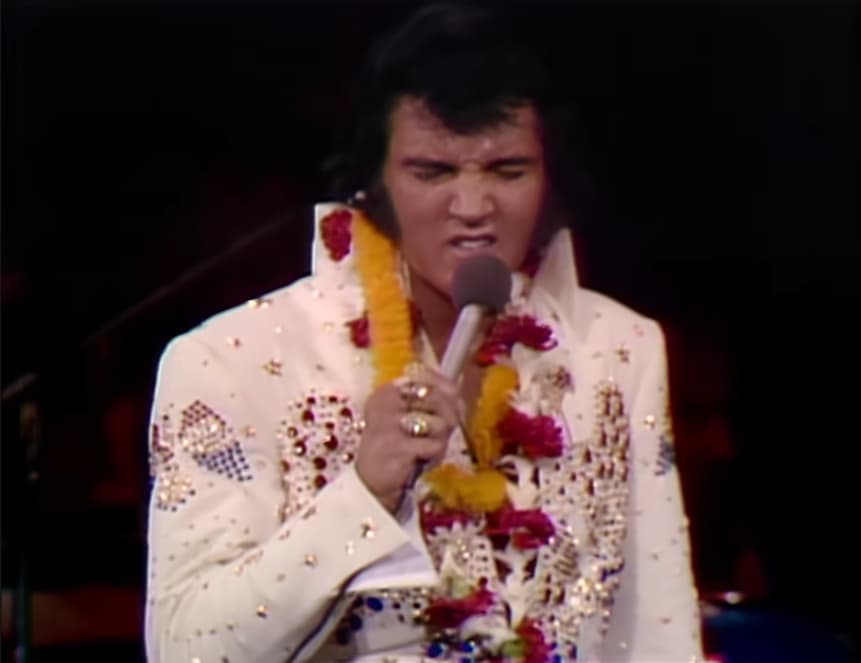
When Love Becomes a Trap: The King’s Last Great Roar
The anguished plea of a lover tormented by perpetual doubt and suspicion.
There are songs that simply exist, and then there are those rare, seismic moments in musical history that define an era, a career, and an emotion. Elvis Presley’s recording of “Suspicious Minds” is undeniably one of the latter. While the studio version—a potent, soulful masterpiece released in 1969—marked his glorious return to the pinnacle of popular music, it’s the live versions, especially the electrifying performance captured on the 1973 album Aloha From Hawaii, Live in Honolulu, that truly cement its legend.
The original single, released in August 1969, wasn’t just a hit; it was Elvis’s first single to top the Billboard Hot 100 chart in the United States since “Good Luck Charm” in 1962, a massive seven-and-a-half-year gap. It peaked at Number 1 on November 1, 1969, and enjoyed similar success globally, reaching Number 2 in the UK Singles Chart and Number 1 in countries like Canada and Australia, unequivocally proclaiming that the King was back and ready to reclaim his throne.
The genesis of “Suspicious Minds” lies not with Elvis, but with songwriter Mark James. James penned the tune, reportedly drawing inspiration from a tumultuous love triangle in his own life. He was married but still harbored feelings for his childhood sweetheart, a situation that made his wife deeply suspicious. The song’s most famous, haunting line, “We’re caught in a trap, I can’t walk out / Because I love you too much, baby,” perfectly encapsulates James’s personal feeling of being hopelessly entangled. It’s a universal cry of anguish: the desire for a love to survive against the poison of mistrust, where one partner’s fidelity is constantly questioned by the other’s deep-seated insecurity or suspicion, threatening to destroy a good thing.
When Elvis recorded it during the legendary 1969 sessions at American Sound Studio in Memphis—a post-Comeback Special move that saw him embracing grittier, contemporary soul and rock—he was fighting a battle for artistic control against his manager, Colonel Tom Parker, who, as was his custom, demanded half of the song’s publishing rights. Producer Chips Moman bravely refused, but Elvis, recognizing the song’s raw power, insisted on recording it anyway, a rare act of artistic defiance that paid off immensely. The resulting studio track, particularly known for its dramatic and unusual fade-out and subsequent fade-in, became his defining late-career single.
But to truly grasp the monumental impact of this song on the collective memory of a generation, you must turn to the spectacle of Aloha From Hawaii. Broadcast via satellite to over 40 countries and watched by an estimated 1.5 billion people worldwide, it was the ultimate demonstration of Elvis’s global majesty in 1973. Decked in his famous high-collared white jumpsuit, a costume that symbolized the larger-than-life spectacle he had become, Elvis delivered “Suspicious Minds” as a tour-de-force finale, complete with the signature swirling cape movement that gave the song a profound theatricality. The song became his emotional centerpiece in the 70s, a roaring, sweat-soaked, desperate plea that transcended a simple pop hit to become a soul-baring moment. For those of us who remember watching it, either live or on delayed broadcast, this version is not just a performance; it’s a living monument to the King’s emotional power and undimmed star quality. It’s the sound of a man pouring his whole self into a lyric, turning Mark James’s personal heartbreak into a magnificent, communal release. It reminds us of a time when a single voice could truly command the entire world’s attention.